What Is A Privacy Coin And What Does It Do?
Coin Privacy Or Privacy Coin Is A Type Of Cryptography That Focuses On Protecting The Privacy Of Individuals By Hiding The Identities Of Users And Transactions.
Privacy Coin, After Bitcoin was introduced as an alternative to government-controlled national currencies, many proponents of digital currencies saw it lack the features needed to protect users’ privacy and assets. This concern is even greater in authoritarian countries that have banned or suppressed the use of digital currencies.
Full protection of users ‘privacy in digital currencies means that the details of users’ accounts and transaction history cannot trace in any way.
Public opinion believes that all digital currencies are untraceable. Still, the fact is that most Chinese blockchain networks, including Bitcoin and Ethereum, are completely transparent, and the complete information and history of all transactions are recorded in it.
Although the block China Bitcoin insert name and the owner’s true identity, do not have sufficient resources to analyze the chain, the true identity of individuals can obtain.
The Titles You Will Read In This Article:
- What are Privacy Coins?
- Reasons for the superiority of privacy coins
- Are Privacy Coins Legal?
- Reason for removing privacy coins from the list of exchanges
- Dash
- Monero
- Zcash
- Beam
- Grin
- Applications of privacy coins
- Conclusion
What are Privacy Coins?
In terms of transparency, anyone on the Bitcoin network and other blockchains that do not focus on privacy can view public addresses and transactions and track people’s deposits and withdrawals. Transactions in a privacy network have two different characteristics:
- Anonymity: the identity and address user transactions through Wallets he is not identifiable.
- Non-traceability: User-related transactions cannot be traced by examining blockchain information.
Two examples of the famous Privacy Coins that have become important in providing this feature to users these days are Moneroe and Dash. Many other private coins have been created inspired by these two cryptocurrencies.
Due to the two features mentioned about privacy coins, these digital currencies are used in money laundering and terrorist financing; For this reason, they are the focus of global anti-money laundering scrutiny, and many exchanges have removed them from the list of digital currencies they support.
Therefore, it is advisable to exercise caution when choosing privacy coins and abide by the rules that apply to them.
Reasons for the superiority of privacy coins
To make transactions untraceable and anonymously identifiable, the network of privacy coins hides the origin and destination of transactions using various techniques and combinations. The most well-known techniques used in privacy coins are secret addresses, circular signatures, Kevin Joy and ZK Snarks.
Stealth Addresses
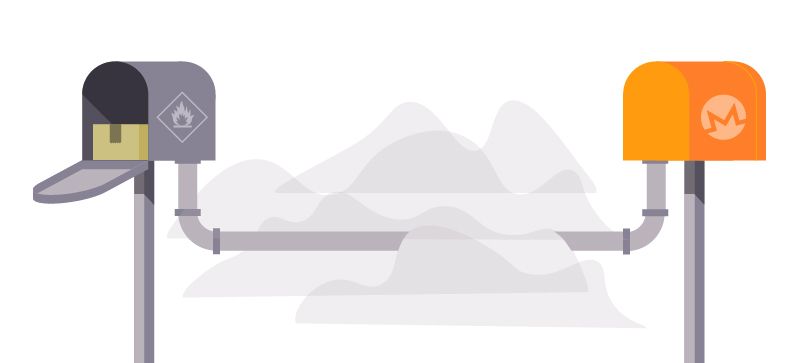
Hidden addresses are the easiest way to increase the privacy of transactions. Each time the passwords are received, a new address is generated in this method, and no connection is established with the receiver. In this case, when the digital currency is sold, the output cryptocurrency cannot be linked to the input cryptocurrency.
For example, the Monero network uses a dual-key secret address protocol (DKSAP). In this protocol, users are assigned two private keys (one to view and one to spend) and a recipient address. Transactions will send with the private spend key, and incoming transactions will be available with the private view key.
In this method, the receiving address is made public. Still, the received assets are sent to another address, and only the sender and recipients of each transaction know the exact address of the destination.
Ring Signatures

In blockchains, the sender must sign the transactions before sending them. This digital signature identifies the real sender of the transaction. Since the transaction sender does not have more than one address, identifying him will not be difficult.
In the circular signature method, combining multi-transaction digital signatures will not be easy to identify the sender; Because the more composite signatures, the more difficult it is to identify the sender.
CoinJoin
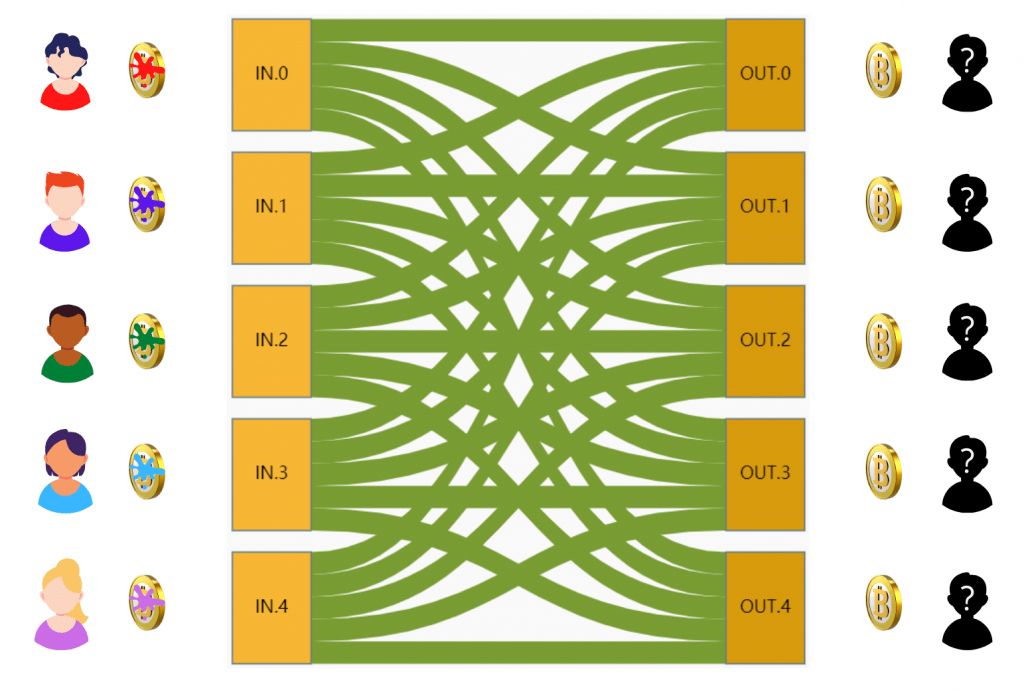
In the CoinJoin technique, the transactions of different people are combined and merged into a single transaction and then sent to the relevant users using unique and completely new addresses; Thus, it will be challenging to track transactions and find the main sender. This technique was initially proposed to improve the privacy of the Bitcoin network. Still, it was eventually used as part of the ability to send information and transactions over the Dash network secretly.
Zk-SNARKs
In the Ziki Snarks technique (Zero-Knowledge; Zero-Knowledge; Succinct Non-Interactive Argument of Knowledge), the user can prove that he is aware of that information without disclosing certain information.
In fact, it is possible to verify transactions without sharing their details (sender, recipient and transaction amount) in this method. In addition to protecting privacy, Zi Snarks also helps increase blockchain scalability.
Are Privacy Coins Legal?
Whether or not privacy coins are legal depends on how each country legislates. For example, the South Korean government has banned the sale and purchase of such cryptocurrencies in its exchange offices to prevent money laundering.
In some countries, there are no specific rules for trading private coins. Some governments also have different legislation regarding these cryptocurrencies; The US government, for example, is taking a different approach to developing tools that allow transactions to be tracked on private networks.
Many governments have not outlawed the purchase and sale of privacy coins, But this does not mean that they approve their transactions.
Private transactions are not necessarily used for malicious activities such as money laundering and terrorist financing, and some users use privacy coins only to obsess over their financial privacy further. However, more and more government agencies are banning the trading of non-traceable digital currencies. Draynmyan, many famous people like Elon Musk, Edward Snowden and the Naval Ravykant continue to support programs that focus on privacy.
Reason for removing privacy coins from the list of exchanges
The removal of privacy coins from the list of exchange offices in each country depends on the views of the government and the way of legislation in that country. In privacy-focused digital currency transactions, legislators may circumvent; While regulatory bodies only control centralized exchanges.
When legislation prohibits certain digital currency transactions within the country, exchange offices in that country should remove the cryptocurrencies from their list of cryptocurrencies as soon as possible and risk closure if they continue their activities concerning the specified cryptocurrencies. Will take. In such cases, some exchanges will completely close the transactions related to those cryptocurrencies, and others will remove them completely from their platform.
Although transactions on the Bitcoin network are traceable, criminals still prefer it to other digital currencies.
Privacy hotspots have come under increasing scrutiny by regulators over the past few months, and some exchanges have forcibly removed them from their lists as a precaution.
As a result, prominent privacy coins such as Moneroe, Dash, and Cash have been removed from the list of several prominent exchanges, including Bittrex, CoinCheck, Coinbase, and Shapeshift. However, Kevin Gemini Exchange added ZiKash privacy to its list in September 2020.
Today, there are many privacy-focused coins in the digital currency market, which can confuse users in choosing the right cryptography to suit their needs. In the following, we will examine the most well-known private coins and the unique points of each.
Dash
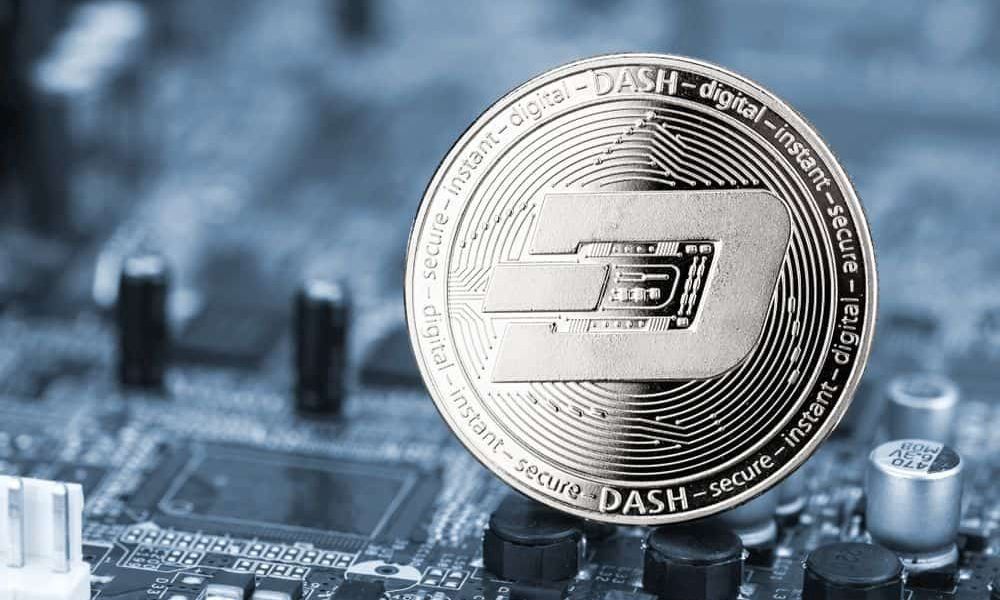
Dash Crypto is a peer-to-peer and fork of the main bitcoin network created in 2014 (2014). At the time, the cryptocurrency was called Xcoin and later renamed DarkCoin and eventually Dash. This coin has a feature called PrivateSend, which uses the CoinJoin strategy to anonymize transaction inputs.
Given that Dash is a fork of bitcoin, transactions are not inherently anonymous; But according to the digital currency development team, the team’s focus is on protecting users’ privacy. The amount of Dash cryptocurrency assets in the user states or their addresses, such as Bitcoin, is publicly available; Unless users use the PrivateSend option for Dash. Transactions are fast, and the costs are low.
Compare Dash with Bitcoin
The main difference between Dash and Bitcoin is in the consensus algorithms used in them. Both cryptocurrencies use a proof-of-work algorithm; But Dash has another extra layer: the first layer is the miners who keep the network secure and write transactions in the blockchain network; The second layer consists of master nodes that control the sending of instant and private transactions and decentralized governance using a stock-proof algorithm.
Dash also uses another feature called InstantSend to perform transactions instantly. Given that users on the Dash network can choose between the availability or non-availability of their transactions, it can say that these cryptocurrencies are superior to Bitcoin in terms of privacy.
Compare Dash with Moneroe
Dash and Moneroe are both digital currencies that protect users’ privacy, But how to do this is different in these two private coins. Dash uses a two-tier system that combines a work-proof algorithm and stock-proof algorithm, and with its PrivateSend feature allows users to choose to remain anonymous. Still, transactions in the Moneroe network are inherently anonymous.
Dash uses the Coinjoin strategy; But Moneroe uses other strategies, such as circular signatures; For this reason, it is more difficult to track its transactions than Dash. Moneroe takes the privacy lead, But transactions on the Dash network are much faster and cheaper.
Comparing Dash with Zee Cash
Dash uses the X11 hash algorithm. In this algorithm, 11 different hash functions are used for extraction. Coin Dash combines the privacy of the operating node (X11) and stock-proof master nodes algorithms using a hybrid extraction system. The mechanism used in ZiKash is also a combination of Zi Snarks and the Equihash algorithm.
Dash and Zi Cache are both bitcoin forks, with a 2 MB block size limit and a 2.5 minute block validation time in both. It can say that ZeeCash works better than Dash in protecting users’ privacy; Because it is possible to view dash transactions if you have access to master nodes.
Moneroe

Moneroe is known as the most popular blockchain of privacy among users. This private coin is also of particular importance among criminals because of its unique mechanism. Moneroe uses a combination of several powerful strategies such as secret addresses and circular signatures and a work-proof algorithm to anonymously identify users, making it impossible to identify the origin and destination of transactions on its network.
In fact, Moneroe’s privacy is so exceptional that the US government (IRS) has set a $ 625,000 reward for anyone who can identify the technology used on its network. However, someone at Chainalysis claims that ” although Moneroe was cleverly invented, “But it is not perfect .”
Compare Moneroe with Bitcoin
The consensus algorithm used in the Moneroe and Bitcoin networks is the same, and the algorithm is evidence-based, But these two digital currencies are very different from each other. Bitcoin mining is done with an ASIC machine; Miners, on the other hand, only need one CPU to extract Moneroe.
In addition to the hardware required for extraction, the block size on the Bitcoin network is fixed; But the size of the blocks in the Moneroe network can change, and it is possible to increase the volume of transactions from time to time. Nevertheless, criminals still prefer to use bitcoin; Because it is easier to exchange and convert into cash.
Zcash
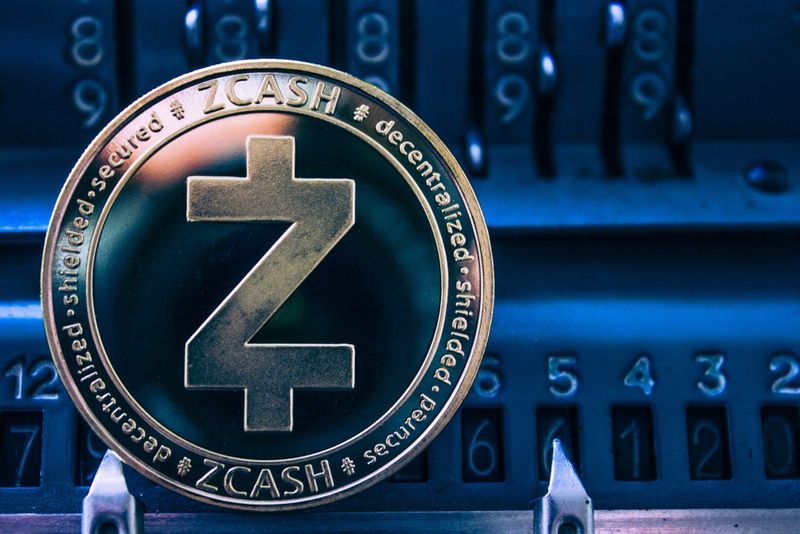
Kevin Zi Cash Privacy was launched in 2016 (2016) and is like a fork from Bitcoin. Like Bitcoin, it uses a stock-proof algorithm to verify transactions. The strategy used in ZeeCash is to increase Zeek Snarks users’ privacy and allow users to send their transactions in both regular and anonymous forms.
Compare Zee Cash with Moneroe
The first difference between ZeeCash and Moneroe is the same strategy used to protect users’ privacy: ZeeCash uses Zee-Snarks and Moneroe uses secret addresses and circular signatures. In the cache network, users can choose whether or not transactions are done anonymously; They can even choose which transactions to perform anonymously. However, in the Moneroe network, transactions are done automatically anonymously, and this feature is not changeable or optional.
Compare Zee Cash and Bitcoin
ZeeCash is actually the bitcoin to which more features have been added. One of these features is the ability to choose privacy, and another difference between Bitcoin and Bitcoin is how the bonus is distributed.
In the Bitcoin network, the miner is rewarded with a complete extraction. Still, before the Hawking network, in November 2020, 10% of the bonus went to the development team and its shareholders for further development of the network. Still, after that, this 10% of the founders’ bonus remove, and now, the miners receive 80% of the extraction bonus, and the remaining 20% goes to the funds and the foundation.
Beam
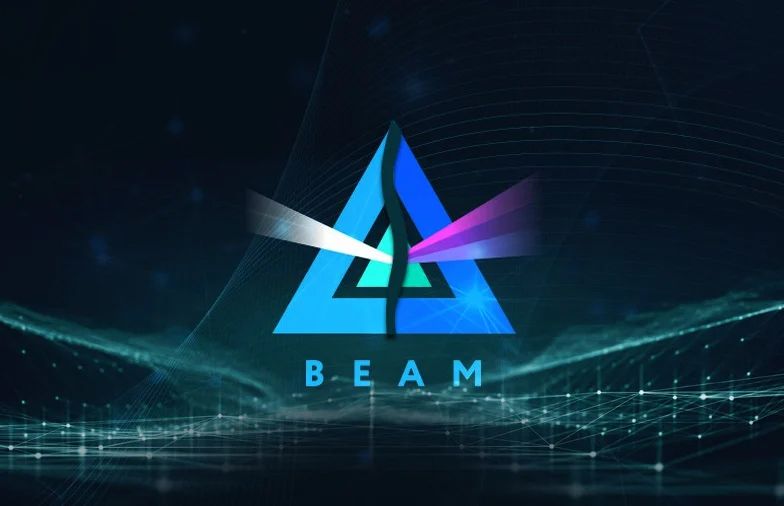
Beam Coin is a privacy policy that uses a Chinese blockchain called MimbleWimble to remain anonymous. Wembley, also known as MW, is a proof-of-work algorithm that increases the privacy and better scalability of the network by using a new way of structuring and storing transactions. Using unidentified addresses, Beam eliminates the possibility of tracking transactions and shows small transactions related to a block in the form of large transactions.
Grin

Kevin Green Privacy was launched in January 2019 and used the Wembley China blockchain like Beam. Green is one of the top scalable and anti-censorship privacy currencies developed with public funding.
One of the interesting and controversial points of the Green platform is that all miners receive the same unlimited reward rate with any age. The standard used in Green Network for privacy, security, compatibility and improved file management is called Slatepack.
Applications of privacy coins
Privacy keys are not always used for purposes such as money laundering, and there are other uses for these cryptocurrencies. For example, the two parties in a transaction may be reluctant to let the other party know about another cryptocurrency; Because then, either side may demand more cryptocurrencies from the other, or in a country where the government demands unfair taxes, the people of that country may be reluctant to make their digital currency assets available to the public.
Conclusion
Digital currencies have been around since their inception to provide the conditions for secure communication; Thus, if we ignore the illegal and destructive uses of privacy coins, these cryptocurrencies are an important part of the digital currency ecosystem.
Although surveys show that the use of cryptocurrencies for money laundering and other illegal activities accounts for a small percentage of all such activities, many governments are still pessimistic about digital currencies and their use.
Although many projects have been created with the claim of real privacy, it seems that the three projects of Moneroe, Dash and Zee Cash are still known as the most popular blockchain in this field. Beam and Green are also suitable for users who care about scalability as much as privacy.











